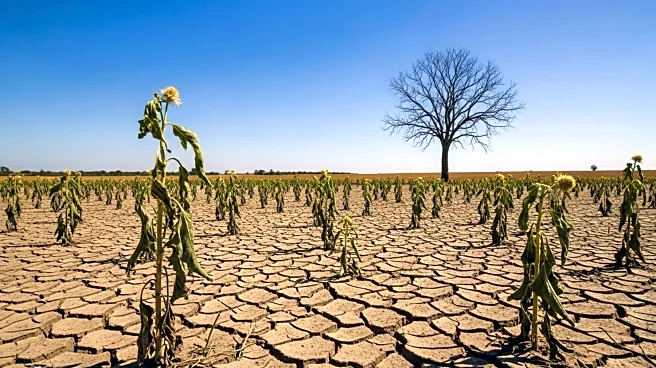What's Happening?
Turkey is currently experiencing its most severe drought in over half a century, with rainfall levels dropping by 27 percent compared to the average of the last three decades. This drastic reduction in precipitation has severely affected agricultural production across the country, leading to concerns about food security and economic stability. The drought has impacted various regions differently, with some areas experiencing even greater reductions in rainfall. The situation has prompted discussions on the need for improved water management and agricultural practices to mitigate the effects of such environmental challenges.
Why It's Important?
The drought in Turkey poses significant challenges for the country's agricultural sector, which is a vital component of its economy. Reduced rainfall can lead to lower crop yields, affecting food supply and prices both domestically and internationally. This situation underscores the importance of sustainable water management and agricultural practices to ensure food security and economic resilience. The drought's impact on agriculture also highlights the broader implications of climate change and environmental shifts, prompting policymakers and stakeholders to consider long-term strategies for adaptation and mitigation.










